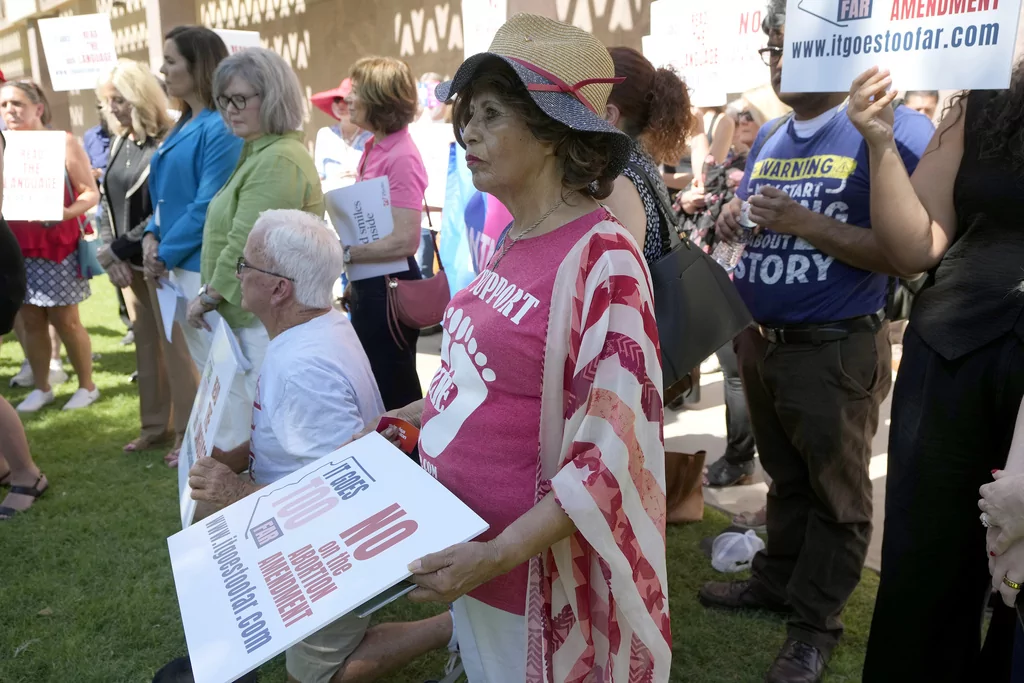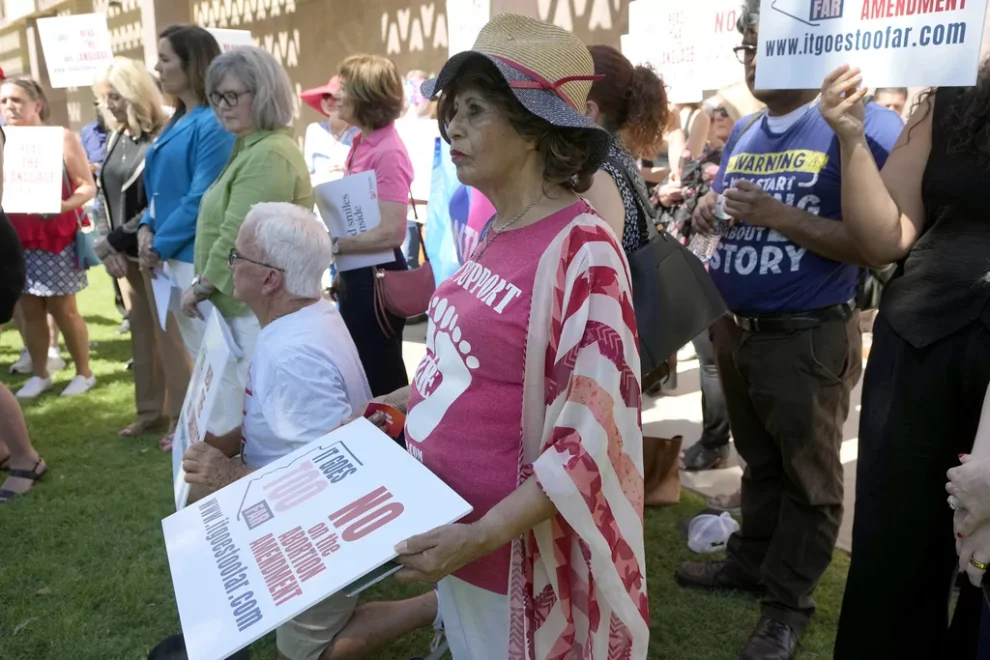The Arizona Supreme Court ruled Wednesday that fetuses can be described as an “unborn human being” in pamphlets informing voters before they decide whether to add a right to an abortion to the state’s constitution.
The state’s top court ruled that the phrase, which describes what fetuses become after they have developed in a mother’s womb, “substantially complies” with the impartiality requirement under Arizona law.

A full decision is said to be on the way, according to the brief order from the seven-member bench. Chief Justice Ann Scott Timmer and Justice James Beene dissented.
Arizona for Abortion Access, the campaign that is backing the ballot initiative, sued to change the language in information pamphlets to merely say “fetus,” arguing the term was more impartial.
“We are deeply disappointed in this ruling, but will not be deterred from doing everything in our power to communicate to voters the truth of the Arizona Abortion Access Act,” the group wrote in a statement, calling on residents to vote “YES” on the measure during the November general election.
Abortions in Arizona are currently subject to a 15-week ban due to a law passed by Republican lawmakers in 2022 following the Supreme Court decision that allowed states to create gestational limits on such procedures, overturning nearly five decades of precedent under Roe v. Wade.
The law provides exceptions for the life of the mother but not for rape or incest.
CLICK HERE TO READ MORE FROM THE WASHINGTON EXAMINER
The ballot measure, if approved, would amend the state constitution to allow abortions up to around 23 or 24 weeks after conception and would restrict the state from adopting or enforcing any law that would prohibit access to the procedure.
Vice President Kamala Harris, the Democratic nominee, has made reproductive rights a central point of her campaign, and a recent HighGround Public Affairs survey shows her about 3 percentage points ahead of former President Donald Trump, with Harris receiving 44.4% of the support and Trump receiving 41.6%.








 BREAKING NEWS
BREAKING NEWS















